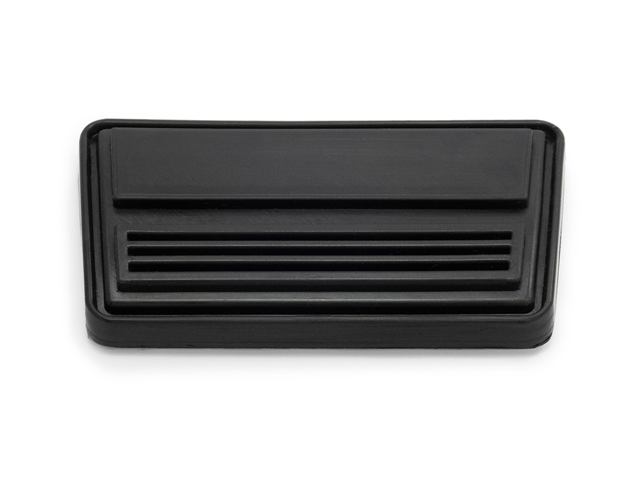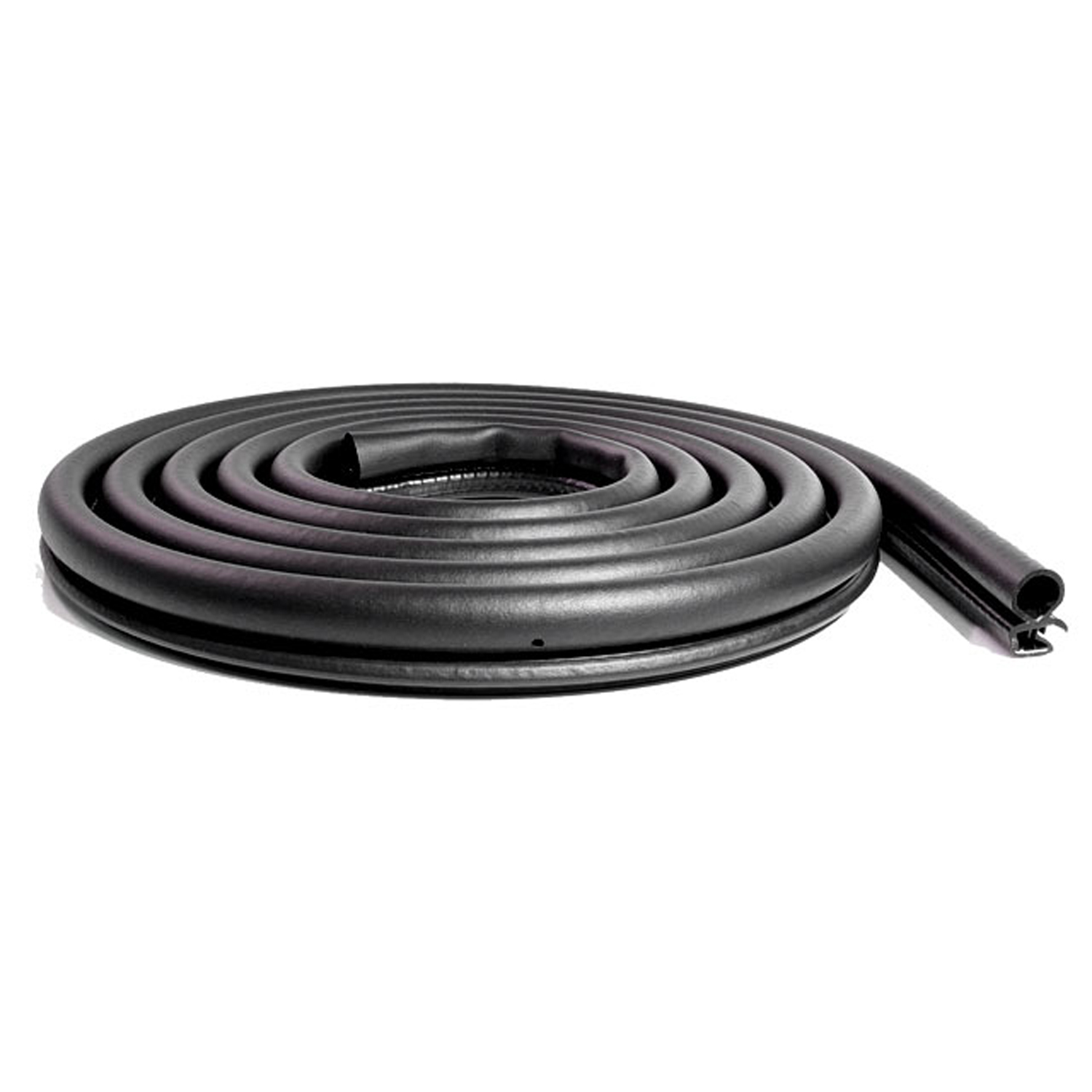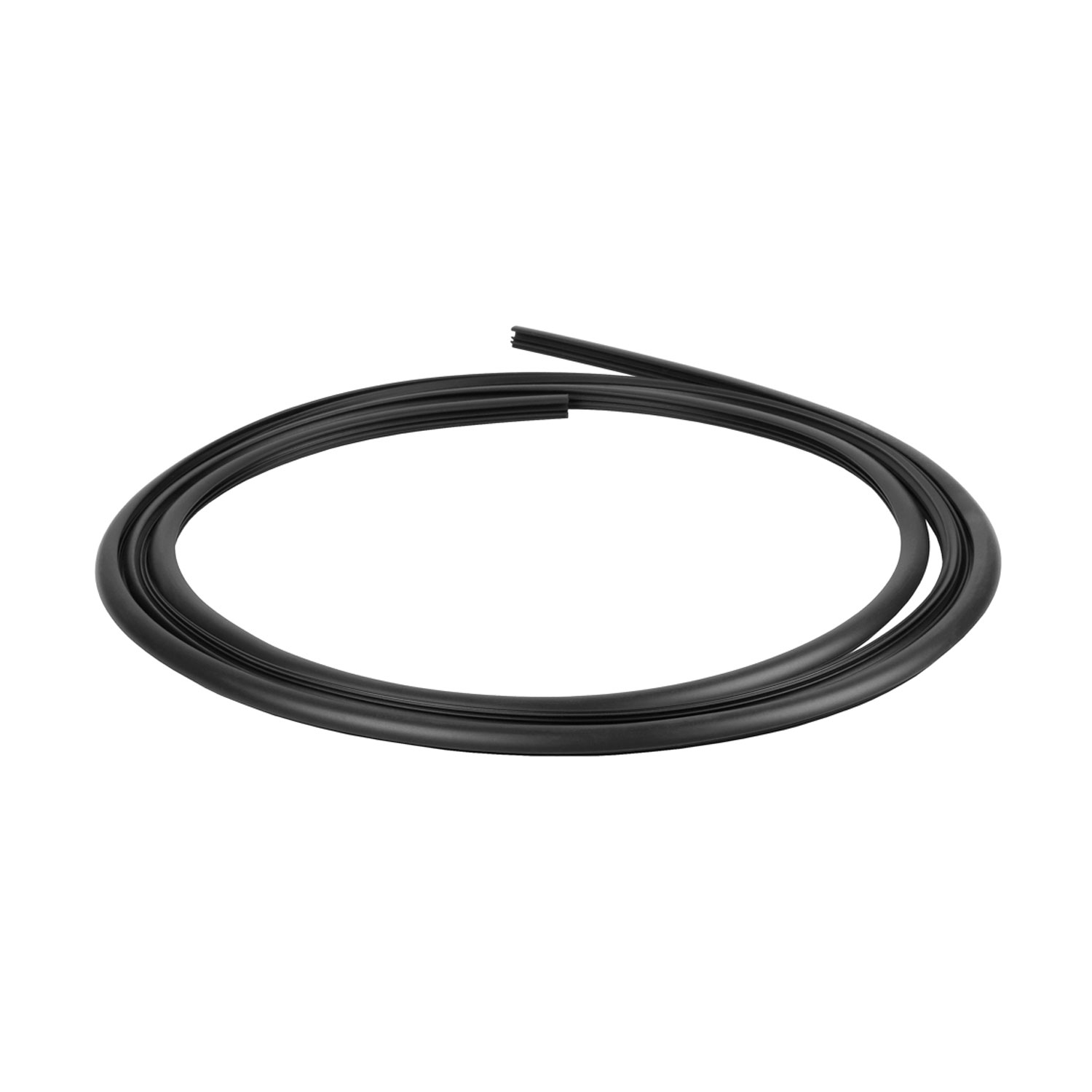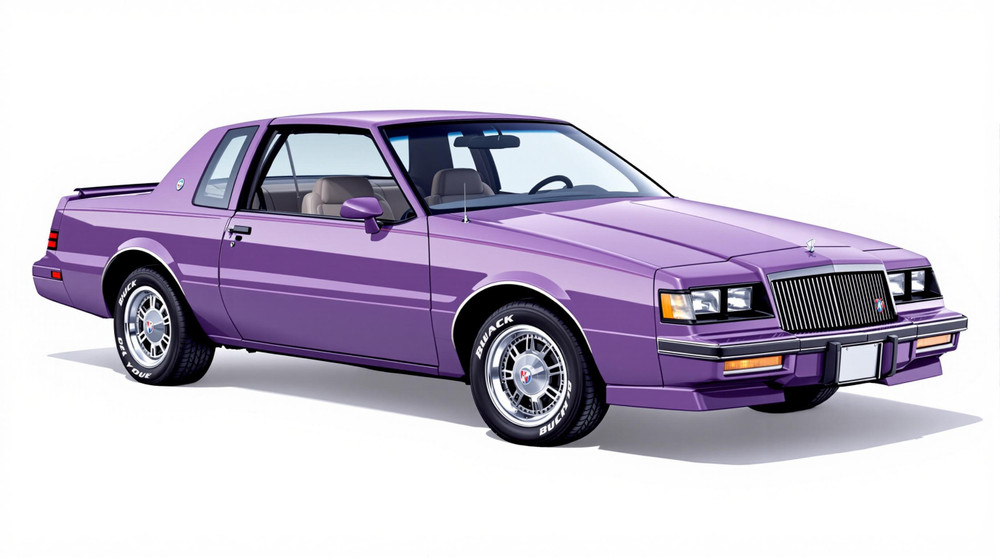Image of 1989 Buick Skyhawk, Note: These illustrations use artistic license and may differ from actual historical models.
Performance Metrics
Fundamental Metrics
Emotional Appeal
MMP Rating
| Engine Specifications | |
|---|---|
| Engine Options: | 2.0L 4-cylinder, 2.0L Turbo 4-cylinder |
| Displacement Range: | 121-122 cu in. |
| Horsepower Range: | 90-165 hp |
| Torque: | 110-175 lb-ft |
| Compression Ratio: | 8.5:1 (2.0L), 8.0:1 (2.0L Turbo) |
| Ignition System: | Electronic |
| Cooling System: | Liquid-cooled |
| Performance Specifications | |
| 0-60 Time: | 10-8 seconds |
| 1/4 Mile Time: | 17-15 seconds |
| Top Speed: | 110-130 mph |
| Transmission and Drive | |
| Drive Type: | FWD |
| Transmission Type: | 3-speed automatic, 5-speed manual |
| Fuel and Efficiency | |
| Fuel System Type: | Fuel injection |
| MPG: | 20-25 mpg |
| Dimensions and Brakes | |
| Brakes: | Front disc, rear drum |
| Wheelbase: | 101.2 in. |
| Weight: | 2,400-2,600 lbs |
Note: Specifications for classic cars are given to the best of our ability, considering the limited and variant data available.
1989 Buick Skyhawk: A Testament to American Compact Engineering
The 1989 Buick Skyhawk is not just a car; it's a slice of automotive history that encapsulates the spirit of American ingenuity in compact car design. Born from the stables of General Motors, the Skyhawk was part of the J-body platform, which was GM's answer to the fuel crises of the 1970s and the growing demand for smaller, more efficient vehicles. This particular model year marked the twilight of its production, making it a swan song of an era. One unique fact about the Skyhawk is its shared lineage with other GM models like the Chevrolet Cavalier and Pontiac Sunbird, yet it maintained a distinct Buick flair that appealed to a specific market segment.
Design and Innovation
The exterior of the 1989 Buick Skyhawk boasted clean lines and an aerodynamic profile that was both functional and aesthetically pleasing. Its design was a careful blend of economy and luxury, with just enough chrome to remind you it's a Buick. Inside, occupants were greeted with a straightforward yet comfortable cabin, where plush fabrics often outshone those found in its J-body siblings. The dashboard housed an array of gauges and controls that were state-of-the-art for the time, including optional digital readouts that gave it a futuristic edge. Color options ranged from conservative hues to more vibrant shades, with popular choices including Bright White and Medium Garnet Red Metallic. The Skyhawk came in several body styles, including two-door coupes and four-door sedans, but it was the sporty hatchback model that often turned heads and captured hearts.
Historical Significance
The Skyhawk's impact on automotive design was subtle yet significant. It demonstrated that compact cars could carry a premium feel without a premium price tag. It also helped pave the way for future generations of compact luxury vehicles. The Skyhawk stood out for its balance between economy and comfort, offering features like power windows and air conditioning that were not always standard in compacts of that era.
Performance and Handling
Under the hood, the 1989 Skyhawk was typically powered by a 2.0-liter four-cylinder engine or an optional 2.0-liter turbocharged variant, providing adequate pep for daily driving. While top speed and acceleration figures were modest by today's standards—the car could reach 60 mph in around 11 seconds—it offered reliable performance for its time. Handling was characterized by responsive steering and competent road-holding abilities, making it well-suited for both city driving and highway cruising. Drivers often praised its smooth ride quality and manageable size.
Ownership Experience
Skyhawks were commonly used as daily drivers due to their practicality and fuel efficiency. Owners found them relatively easy to maintain, with parts being widely available thanks to the commonality of the J-body platform. Though some components were known to wear over time—such as the head gasket or alternator—these issues were generally considered par for the course with vehicles from this era.
Fun Facts
The Buick Skyhawk may not have been a frequent choice for celebrities or racers, but it did find its way into many American driveways with over 100,000 units produced during its lifespan. It didn't set any speed records but did achieve recognition for its balance of economy and luxury in a compact form factor. Criticisms often focused on its modest power output and occasional reliability issues.
Collector's Information
Today, the value range for a well-preserved 1989 Buick Skyhawk can vary significantly based on condition, mileage, and history. While not as highly sought after as some classic cars, a pristine example could fetch anywhere from $1,500 to $5,000 or more depending on market interest at any given time. As these vehicles become rarer on the road, their value may appreciate modestly over time among enthusiasts who appreciate their place in compact car history.
Conclusion
The 1989 Buick Skyhawk is more than just an old car; it's a testament to an era when compact didn't mean compromise. It bridged gaps between efficiency, affordability, and comfort at a time when America needed it most. Whether you're an enthusiast looking to relive memories or a collector seeking an understated gem from the late '80s, the Skyhawk offers a unique piece of automotive heritage worth considering.
1989 Buick Skyhawk Catalog of Parts
 1989 Buick Skyhawk Automatic brake pedal pad fits '78-88 GM A, Spec A, G Body-CB 101-DCB 101-D replaces the automatic brake pedal pad on many 1978-1988 General Motors A, Spec A and G body models. Also fits many 1982-1991 GM J, L, N and P body models. 4-1/2" wide X 2-1/2" long. Each
1989 Buick Skyhawk Automatic brake pedal pad fits '78-88 GM A, Spec A, G Body-CB 101-DCB 101-D replaces the automatic brake pedal pad on many 1978-1988 General Motors A, Spec A and G body models. Also fits many 1982-1991 GM J, L, N and P body models. 4-1/2" wide X 2-1/2" long. Each 1989 Buick Skyhawk Extruded door seal (imported). Universal replacement part-IS-MW00100Extruded door seal (imported). Universal replacement part. Made with flexible steel core. Fits front or rear and either side on passenger doors. Does not fit slider/cargo doors and liftgates on vans and mini-vans. 1-3/16 in. X 3/4 in. X 13 ft. 4 in. Each.
1989 Buick Skyhawk Extruded door seal (imported). Universal replacement part-IS-MW00100Extruded door seal (imported). Universal replacement part. Made with flexible steel core. Fits front or rear and either side on passenger doors. Does not fit slider/cargo doors and liftgates on vans and mini-vans. 1-3/16 in. X 3/4 in. X 13 ft. 4 in. Each. 1989 Buick Skyhawk Windshield Reveal Molding, 82-92 GM F, 82-88 GM A, 82-89 GM J, 85-91 GM N Bodies-VWS 1967-LWindshield Reveal Molding, 82-92 GM F, 82-88 GM A, 82-89 GM J, 85-91 GM N Bodies, Each.
1989 Buick Skyhawk Windshield Reveal Molding, 82-92 GM F, 82-88 GM A, 82-89 GM J, 85-91 GM N Bodies-VWS 1967-LWindshield Reveal Molding, 82-92 GM F, 82-88 GM A, 82-89 GM J, 85-91 GM N Bodies, Each.Why Choose Metro?
For over 100 years, Metro Moulded Parts has been the pinnacle of quality in classic car restoration parts. Our commitment to precision and authenticity in every component ensures a perfect fit and an OEM-level appearance.
- Expert Craftsmanship & Quality: Each part is a testament to our dedication to reliability and perfection, crafted from original designs and thoroughly tested.
- Advanced Technology: We use cutting-edge techniques to create flawless, long-lasting parts that surpass others in performance.
- SuperSoft Sponge – The Ultimate Door Seal: Not only are our door seals 30% softer than competitors', but they're also guaranteed to never leak. They effectively reduce wind and road noise, enhancing your classic car's comfort and driving experience.
- Proudly American: Our parts are a product of American craftsmanship, made in the USA with a spirit of excellence and heritage.
- Unrivaled Warranty: We back our products with a 30-year industry-leading warranty, a testament to our confidence in their quality.
Join us in preserving the legacy of classic cars with parts that are crafted for perfection, not just made.

